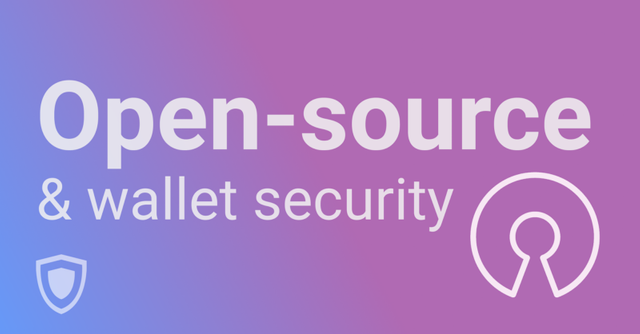Today we are going to dispel some myths about security issues when it comes to famous open-source. Let’s find out if many companies are opening their code, and what are their reasons for NOT doing this.
Open-source = cooperation and transparency
It’s widely known that open-source software is a type of computer software which:
- is created in collaboration,
- can be distributed free of charge;
- is published openly;
- is developed as a community product.
There are several reasons why companies of all sizes — from bakery to Google — are motivated to switch to open-source technologies:
1) Most developers of open source projects are motivated to use created or improved products personally. They are not necessarily bound by a contract that obliges them to create something for others; they have a personal need they are able to satisfy. Thus, a qualitatively different motivation arises, generating a detailed knowledge of the problem.
2) When development is carried out openly, there is a bigger chance to avoid code redundancy and to identify and simplify a problematic, complicated or unnecessary code.
3) Many open source users help to identify problems and sometimes even offer brilliant solutions. The line between the consumer and the manufacturer of an open-source software is blurred: the work on the software is transparent, it is conducted in front of the public — this allows users to monitor the security of their data, for example, making sure that the data is not put out on the Internet. Especially since participation in the creation process is available to everyone.
What about companies’ intellectual property?
How should those companies act, if they share values of transparency and openness, but do not want to give out their unique technology? Let’s look at an example: Guarda Wallet has its own innovation technology — there is an original solution in the “heart” of Guarda Wallet, that gives Guarda a competitive advantage, making the Wallet so fast, convenient and secure and is considered as an intellectual property.Nevertheless, Guarda doesn’t want to close the code completely because it values the trust of users and wants to see the cryptoworld develop.
Golden mean
Here is the answer: Guarda found its way to remain open, but not to give out a unique technology.
In order to provide users with all the necessary information, Guarda partially opened its code with the help of the service Github. Github is a cloud service that allows anyone to create an account, download new code and track. Here you can see Guarda’s open-source components.
It’s worth paying attention to the fact that major part of the code of the Wallet can be viewed in the browser console. The most important thing that can be viewed is that your private key is not needed to send the transaction to the network. This ensures that when it comes to Guarda — all the work with the private key is performed on the user’s device only.
Thus, Guarda actively pursues the policy of transparency and shares code snippets with users. This method allows users to see the most necessary information, for example, about what data is put on the Internet.
The most important thing that users can see is that their keys are in safety — they cannot be put out on the Internet and are held by users only.
Completely open code = complete security?
In this way, Guarda preserves its intellectual property, and discloses some essential items for users. However, the issue of security remains.
Some people associate partially closed code with insecurity, believing that this creates an additional threat to a user. They also believe that free software guarantees complete security. But is it true?
The answer is no. The fact is that partial closeness of the code does not bring additional threats to the user. All the hazards are not directly related to open-source or closed source software. They usually come from another side. There are some quite high-profile cases with known Wallets on fully open source, which nevertheless were attacked by hackers.
This proves us that whether it is Open-source software or not — the security of a user is made up of other things. To sum up: open-source has many advantages, without any doubt, but it’s crucial to remember that whether the code is closed or open — it is NOT an indicator of unreliability or security of software.
Nevertheless, with the advent of the open-source era, companies that are keeping up with the times are seeking for openness and transparency. That’s why we invite you to get acquainted with our developments here — on the site you can get to know Guarda better.
Express your opinion about our service, this article and open-source in general.
Let’s make the crypto-world great and secure together!We also invite you to visit our site https://guarda.co/.

Check this before using Atomic Wallet, Changelly, ChangeNOW or Guarda
INVESTIGATION: https://steemit.com/bitcoin/@somenotesand/russia-s-changelly-atomic-wallet-changenow-guarda-ink-one-evercode-lab
https://bitcointalk.org/index.php?topic=5049346.0
Downvoting a post can decrease pending rewards and make it less visible. Common reasons:
Submit